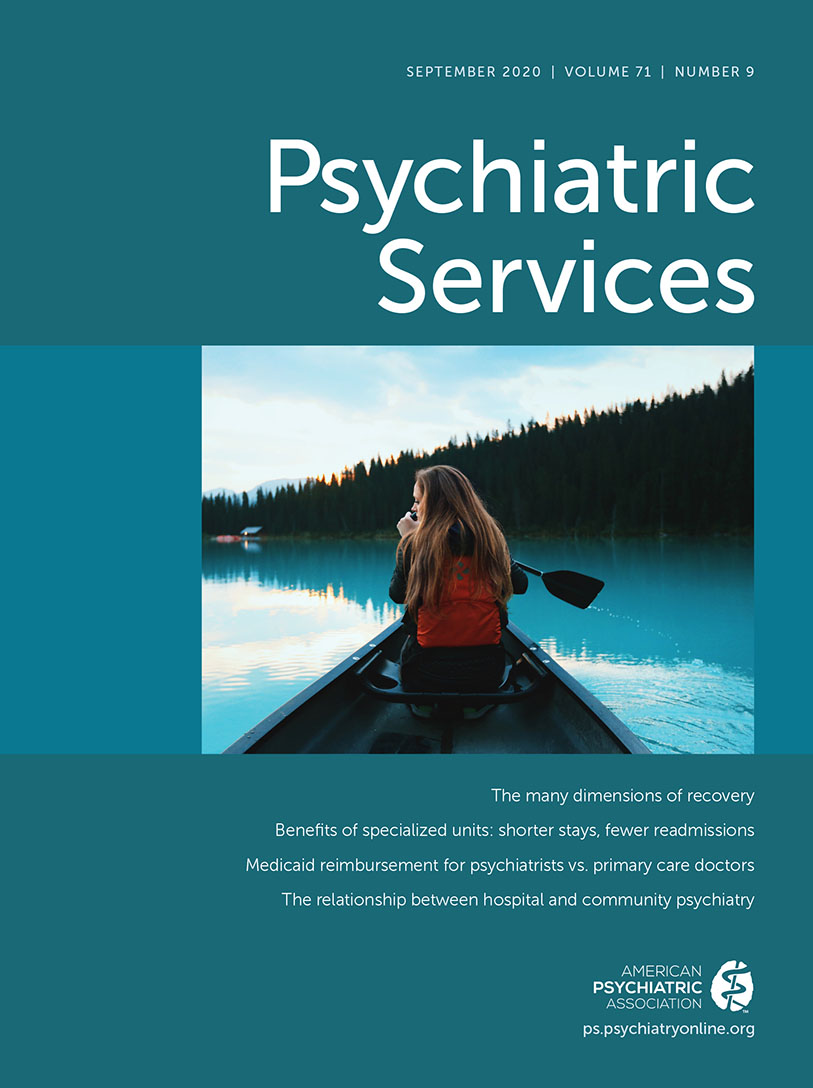The Importance of Psychiatric Rehabilitation Services During and After the COVID-19 Pandemic
Amid the global COVID-19 pandemic, there is uncertainty and concern over how best to meet the needs of people recovering from serious mental illnesses in the community. The public health strategy of sheltering at home and practicing physical distancing has spurred the delivery of services and supports to this group virtually, via telemedicine. Early evidence suggests that many community behavioral health agencies and their service recipients have adapted reasonably well to this medium. However, challenges remain, especially for the significant proportion of recipients who lack consistent access to smartphones and broadband Internet. The question now is what can be done to support people in the long term as they resume lives in an uncertain society with confusing, often contradictory guidelines for avoiding infection and preventing the spread of the virus to others. As society reopens, closes, and reopens again, how can resumption of community life be facilitated for people with serious mental illnesses?
Leslie Caplan’s Open Forum in this issue (1) describes the mission and scope of the National Institute on Disability, Independent Living, and Rehabilitation Research (NIDILRR), a federal agency that supports rigorous applied research and its translation into service delivery models that improve outcomes for people living with disabilities, including psychiatric disabilities. The funding of research that follows the social model of disability has directed attention to individual and environmental factors that affect people with serious mental illnesses. This focus has lent support to the idea of directing services toward recovery, rather than remission or cure, and has introduced a paradigm in which mental disorders, much like chronic medical conditions, are seen as capable of patient self-management.
NIDILRR is unique among federal research agencies in its focus on research topics that are directly relevant to the lives of people with disabilities. This focus has led to studies of outcomes that matter greatly to people with psychiatric disabilities, such as competitive employment, safe and affordable housing, financial security, community participation, and general medical health and wellness. NIDILRR grantees have developed a substantial evidence base for models such as supported employment, permanent supportive housing, recovery-oriented services, and general medical and mental illness self-management.
The agency also was an early proponent of the involvement of people with disabilities in all phases of the research process, including selection of topics, planning and conducting the investigation, interpretation of results, and dissemination of findings. Perhaps that is why the knowledge generated through NIDILRR-funded research is now so germane to the challenges faced by people attempting to rebuild their lives while coping with adversity.
Before the pandemic, our field faced significant and growing workforce shortages of psychiatrists, social workers, psychologists, and counselors. An exception to this was a rapidly expanding workforce of certified peer specialists, or people who have recovered from mental illness and use their lived experience, plus skills learned in formal training, to deliver services and supports. NIDILRR was an early funder of research on peer support and self-help, partly because of the widespread acceptance of this framework for people with other types of disabilities. This led to the development of a valuable knowledge base about peer-delivered services that coincided with the rapid growth of this workforce, now numbering over 25,000 individuals. Thanks to what is now known about peer service delivery, their experience and expertise can be tapped to meet the needs of people as they reengage in a substantially different social, occupational, political, and economic world.
This begs the question of how to help people with psychiatric disabilities reenter society during and after the pandemic. We would argue that their needs are not that different from those of other individuals who face these challenges. These needs include social and emotional support, help in maintaining safe and secure housing, assistance with entering or returning to the workforce, access to education and vocational training, assistance with building economic resources, help identifying community participation opportunities that adhere to COVID-19 mitigation strategies, and promotion of health and wellness. To help meet these needs, the pandemic could also serve as a tipping point toward better nurturing our rehabilitation workforce with enhanced training and support, better pay, and career advancement opportunities while they do the essential work of promoting mental and physical health recovery. Fortunately, since 1979, NIDILRR-funded research has led to the development of community-based service delivery approaches that accomplish these very outcomes, and it has contributed to the growth of an emerging workforce to complement the efforts of traditional behavioral health clinicians.
1 : NIDILRR: supporting applied research and development to improve the lives of people with mental illness. Psychiatr Serv 2020; 71:962–963. doi: 10.1176/appi.ps.201900605 Link, Google Scholar



